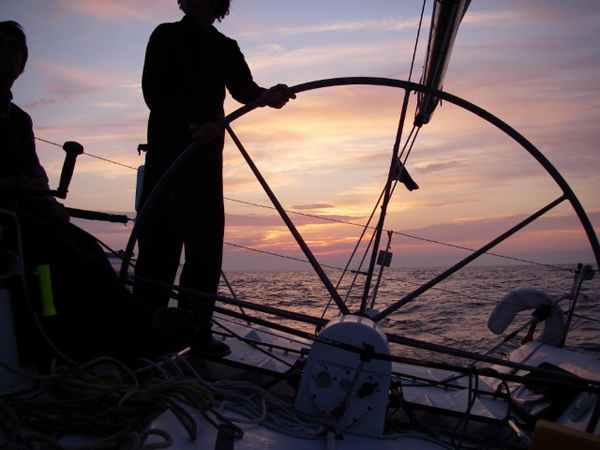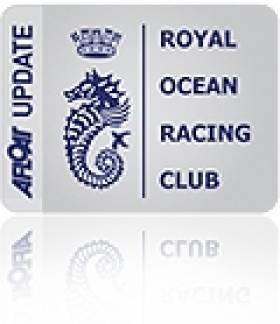Displaying items by tag: St. Malo
Tough Going to St.Malo
This year’s race to St. Malo proved to be a light airs affair but that is something that can happen in any yacht race. Jim Saltonstall is a proven coach at the top level and he recognizes that racing in little wind requires just as much effort as other conditions; “Whether you are sailing in big waves with 40 knots of wind or ghosting along in light airs, you need to sail to the best of your ability to get the results that you wish for. In very light conditions, sailors really need to concentrate on maintaining their focus. Boredom can create mental apathy and the bottom line is that concentration levels have got to be 100% in light airs, just as much as at any other time."
The young aspiring crew from the British Keelboat Academy carried off the spoils, toughing it out on their TP52, John Merricks II, winning the King Edward VII Cup for best yacht overall under IRC and the Lloyds of London Salver for best yacht in IRC Super Zero.
“Besides myself and fellow coach Phil Johnson, all of the crew are between 18 and 24,” explained Luke McCarthy. “The race to St. Malo was the final trial before the big event of the season, the Sevenstar Round Britain and Ireland Race. It was a real boost to the team to win, especially as we virtually match raced the French TP52, Paprec Recyclage, all the way around the course.
Racing in light airs is always a big test of determination amongst other things but we have been very careful to select crew that are multi-skilled. John Merricks II have five good helmsmen and many crew who can trim the boat well. This allows us to keep it fresh, if a crewmember feels they are losing concentration, we actively encourage them to take a break and let someone equally competent take over their role.”
Line honours and the Sandison Memorial Salver went to Mike Slade’s ICAP Leopard, there was no chance of a record this time and even the 100’ Maxi came to a halt in no wind and foul tide north west of the Casquets. However the crew, including renowned yachting journalist Bob Fisher, thoroughly enjoyed the race and their run ashore in St Malo.
IRC Zero was won by Yves Grosjean’s J 133, Jivaro, by just over nine minutes on corrected time from last year’s overall winner; Hugues Riché’s Grand Soleil 44, Spineck. Mike Greville’s Ker 39, Erivale III, was third, another consistent result for the RORC Season’s Points Championship.
In IRC One the first eight boats on corrected time were all from France. François Lognone’s J 122, Nutmeg IV, was the winner lifting the Yeoman Trophy. Bernard Moureau’s head turning JND 35, Gaia, was second with Philippe Reminiac’s J 133, Blackjack, in third position.
The IRC Two victor for the second year running was Ame-Hasle sailed by Jean-Marc Rousselin. The A 35 was a clear winner by some distance lifting the Yacht Club de Dinard Trophy. Noel Racine’s JPK 10.10, Foggy Dew, was second whilst the double-handed team on John White’s X 37, SX Girl, was third in class but lifted the Slingshot Trophy for best yacht in the Two-Handed Division.
IRC Three was won by yet another French entry, in fact apart from the two big boat classes, all of the rest were all won by French yachts. Matthias Kracht’s win on JPK 9.60, Ultreia!, was made all the more sweet by the fact that this was also achieved double-handed. Olivier Busnel’s Bongo 9.60, Olahm, was second with Jean Yves Chateau’s Nicholson 33, Iromiguy, in third.
The RORC Season’s Points Championship continues with the Channel Race
starting from the Royal Yacht Squadron Line, Cowes, on Saturday 24th July. Competitors will be hoping for fair winds for the 24-36 hour race, around marks, finishing back in Cowes. This will be the last offshore race prior to the 1760 mile Sevenstar Round Britain and Ireland race at the end of August.
Full results and more at www.rorc.org <http://www.rorc.org>

Cowes – Dinard – St Malo Race
Organised by the Royal Ocean Racing Club in association with UNCL, Yacht Club de Dinard, Société Nautique de la Baie de St. Malo and the Royal Yacht Squadron.
Course: Cowes – Casquets - Les Hanois – St Malo. Approx. 164 miles.




























































